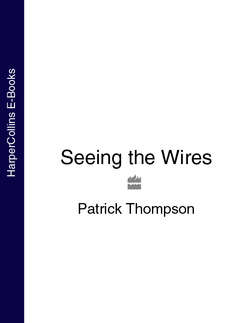Читать книгу Seeing the Wires - Patrick Thompson - Страница 12
VI
ОглавлениеTo cut things short, I used to work on the building sites. After we finished that factory, we moved to the other side of town and put up a warehouse and then we did some office buildings in the classical warehouse style. My overdraft became smaller despite the best efforts of Mr Fallow and his staff. I worked on sites as far away as Wolverhampton and Tipton, despite the language barrier.
The buildings were always the same. I mean, they had different functions – this one was a hospital, this one an office, this one a luxury hotel with many and varied facilities – but they all looked like warehouses.
‘That,’ Mr Link would say, surveying whatever we had just finished bundling together, ‘is what a building is meant to look like. Square, straight, flat on the top and no fancy business.’
Darren and I had decided that Mr Link genuinely believed this. Strange beliefs and superstitions were common on building sites. Spin believed that scaffolding formed matrices that could tune in to otherworldly broadcasts. Darren believed that if he dug far enough down, his trench would connect with the mines that ran under Dudley and he’d be able to tunnel under the off-licence and get all his drinks for free. Mr Link believed that all buildings should be cuboid and without decoration or, ideally, doors and windows. I believed that I was at the beginning of my life and things would turn out okay without me putting much effort into it.
‘Square and straight,’ Mr Link would say. The rest of us would look at each other and try to get away. ‘Nothing fancy. Gargoyles and curlicues and all of that are all well and good for cathedrals, but the modern building is regular. Solid. No weaknesses in the structure.’
This was clearly untrue. In high winds the warehouses we put up fell apart, great sheets of prefab spinning off into the night like a giant conjuror’s playing cards. The structures were riddled with weaknesses, apart from the foundations. Those were solid.
‘Some of them fall down,’ Darren said.
Mr Link gave him a poisonous look. ‘That,’ he said slowly, ‘is because there are weak spots. Windows! Doors! How can we make a solid structure when there are parts of it that open?’
‘It’s sort of fashionable to have doors and windows,’ said Darren.
Spin explained, by use of gestures, that it was traditional to have doors set into buildings so that people could enter and leave them.
‘That’s the thing,’ explained Mr Link. ‘If it was a decent building, they wouldn’t want to leave.’
Spin explained, by use of gestures, that he had thought of something else he could be doing. Darren and I went with him, leaving Mr Link looking at our latest construction – a theme pub on the main road between Stourbridge and Wolverley – and thinking how nice it would look without the windows spoiling the purity of the architectural line.
One morning, the building society sent me a letter including a monthly balance. There was a note of congratulation enclosed, signed by Mr Fallow. My account had become positive for several days. It had since become negative again, of course.
They charged me £15 for the congratulatory note.
The next month, there were more positive days. My account went from red to black, like an infected wound. I no longer needed to work on building sites to pay off my overdraft. I was able, instead, to look for a less well-paying graduate job.
I said a farewell to Mr Link and the gang on a Friday at the end of a bright and cold February. We went to the pub.
‘I knew you’d be going,’ said Mr Link. ‘You’ve been even less use than usual these last couple of months.’
I waited for him to say something good about my trench-digging abilities. He sipped his stout instead. Then he looked up.
‘I’m always sorry to see a good worker go,’ he said, ‘and I’m seeing one go now.’
I was startled and grateful. He caught my expression.
‘Bloody hell, not you,’ he said. ‘Our Spin here is leaving today. Got a job with local radio.’
Seemed about right, I thought. Spin had always had this thing about receiving signals.
